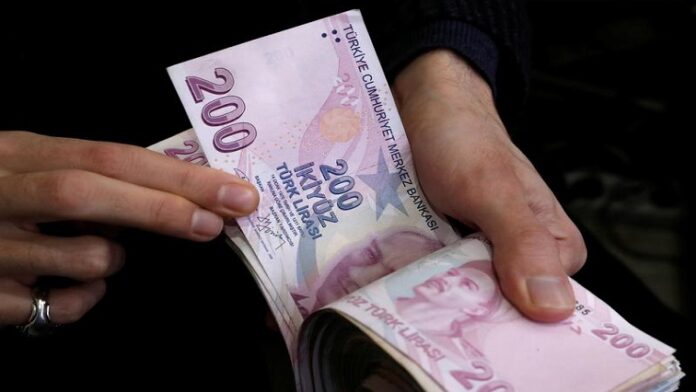ISTANBUL: Turkey’s lira briefly fell 15pc to near its all-time low on Monday after President Tayyip Erdogan’s shock weekend ousting of a hawkish central bank governor sparked fears of a reversal of recent rate hikes.
Sahap Kavcioglu, a former banker and ruling party lawmaker who shares Erdogan’s unorthodox view that high interest rates can fuel inflation, was the third central bank chief abruptly installed by the president since mid-2019.
Kavcioglu had sought to ease investors’ concerns about a sharp pivot from tight to expansive monetary policy, telling bank CEOs on Sunday that he planned no immediate policy change, a source told Reuters.
Nurettin Canikli, a deputy head of Erdogan’s ruling AK Party, said that “the government changing a Central Bank governor who it thought did not use monetary policy instruments rationally, … and thus brought a big financial burden to the economy, is not defiance of the markets”.
The dismissal of Naci Agbal reaffirmed the political control that has for years harmed foreign investors’ view of what is a major emerging economy.
Analysts said Kavcioglu was likely to reverse the interest rate rises Agbal had implemented to shore up Turkey’s capital account and its dwindling foreign reserves.
Societe Generale analyst Phoenix Kalen said the move left Turkey “beyond the point of no return” and predicted “financial turmoil”.
‘TWO CHOICES’
The currency briefly dipped to 8.4850 to the dollar from 7.2185 on Friday, near its intraday record low of 8.58 from last November, before Agbal was appointed.
It recovered about half of its losses after Finance Minister Lutfi Elvan said Turkey would keep to free market rules, and at 0930 GMT stood at 7.95 to the dollar, 9pc weaker – and about half what it was worth before its last crisis, in mid-2018.
Istanbul’s main share index was down 9pc, with banks off nearly 10pc.
Longer-dated dollar-denominated government bonds suffered their biggest daily drop on record. The 2045 bond fell as much as 9.7 cents to as low as 87.01 – a level last seen in early November.
Five-year credit default swaps, insurance against a Turkish default, surged from Friday’s 305 basis points to 464, their highest since Nov 9.
Turkey “will be left with two choices” said Per Hammarlund, senior EM strategist at SEB Research.
“Either it pledges to use interest rates to stabilise markets, or it imposes capital controls.”
Finance Minister Elvan said authorities were determined to stick to free-market rules and a free-floating currency regime. He said in a statement the macro policy framework would continue until there was a lasting fall in inflation.
Erdogan fired Agbal two days after a 2pc rate hike that was meant to head off inflation of nearly 16pc and shore up the lira, which rose 3pc in response.
In less than five months on the job, Agbal had raised rates by almost 9 percentage points to 19pc and regained some policy credibility.
























